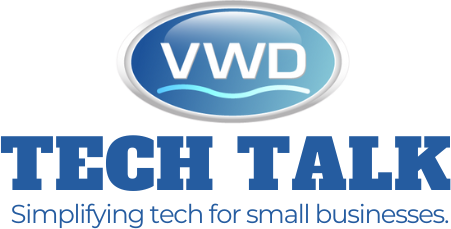There is a constant search among businesses and individuals for ways to manage their work hours more efficiently. Consequently, enter time tracking and productivity software, a revolutionary solution that has transformed how we approach work.
The article explores the evolution, benefits, implementation strategies, and future trends associated with these tools.
The Evolution of Time Tracking
Time tracking isn’t a novel concept. Throughout history, from ancient sundials to punch cards, the methods have evolved significantly. However, in this digital age, we’ve transitioned from manual entries to sophisticated software that not only tracks time but also enhances productivity.
Benefits of Time Tracking Software
The advantages of using time-tracking software are manifold. Here are some of them:
Productivity Boost
- Task Focus: Time-tracking software allows employees to focus on specific tasks without distractions. By knowing where their time is allocated, individuals can prioritize and concentrate on high-priority assignments, leading to increased productivity.
- Time Awareness: Tracking time promotes awareness of how much time is spent on each task. This awareness encourages individuals to work more efficiently, avoiding procrastination and unnecessary time-wasting activities.
Time Management Improvements
- Efficient Resource Allocation: Time tracking provides insights into how employees allocate their time throughout the day. Consequently, this data helps in identifying bottlenecks, optimizing workflows, and ensuring that resources are distributed effectively.
- Deadline Adherence: By monitoring time spent on various tasks, employees can better adhere to project deadlines. Additionally, time tracking enables a proactive approach to time management, allowing for adjustments if certain tasks are taking longer than anticipated.
A Better Way to Track Projects
- Accurate Project Estimates: Time-tracking software facilitates accurate project estimations by analyzing historical data. Moreover, project managers can use past performance metrics to forecast timelines more accurately, leading to realistic project plans.
- Identifying Project Hurdles: Tracking time enables the identification of potential project hurdles in real time. Additionally, if a task is taking longer than planned, managers can intervene promptly, allocate additional resources, or adjust project timelines accordingly.
Competitive Edge in the Market
- Optimized Operations: Businesses utilizing time-tracking software operate more efficiently. Furthermore, the streamlined workflows and optimized resource allocation lead to cost savings and improved operational efficiency.
- Client Satisfaction: Meeting project deadlines consistently and delivering quality work enhances client satisfaction. Moreover, businesses that effectively manage their time are more likely to build a positive reputation, attracting new clients and retaining existing ones.
Choosing the Right Time Tracking Software
Selecting the right time-tracking software is crucial. Firstly, factors such as user-friendliness, scalability, and integration capabilities should be considered. Moreover, popular options like Toggl, Harvest, and Clockify offer a range of features catering to diverse business needs.
Implementing Time Tracking in the Workplace
Time-tracking software implementation requires a strategic approach. Overcoming resistance from employees and addressing potential challenges head-on is essential for successful integration.
Organizations need to communicate the benefits clearly and provide adequate training in order to ensure a smooth transition.
Integrating Productivity Features
Modern time-tracking software goes beyond mere timekeeping. They often include task management capabilities and collaboration tools, fostering teamwork and improving overall project efficiency. This integration streamlines work processes and enhances communication within teams.
Real-Life Success Stories
Numerous businesses have experienced transformative results after implementing time-tracking software.
Case studies highlight how companies have increased their productivity, met deadlines more effectively, and achieved better project outcomes.
Addressing Common Concerns
Privacy and data security are common concerns when implementing time-tracking software.
It’s essential for organizations to address these issues transparently, assuring employees that their data is secure and the software is a tool for improvement, not surveillance.
Mobile Time Tracking Apps
With the rise of remote work, mobile time-tracking apps have gained prominence. These apps offer flexibility, allowing employees to track their time on the go.
However, organizations must consider factors like connectivity and security when opting for mobile solutions.
Measuring ROI with Time Tracking Software
Calculating the return on investment is crucial for organizations. Time-tracking software contributes to profitability by optimizing workflows and ensuring that resources are allocated efficiently. Demonstrating these improvements is key when showcasing the impact on the bottom line.
Tips for Effective Time Tracking
Setting realistic goals and creating a conducive work environment are essential for effective time tracking. Employees should be encouraged to use the software as a tool for personal development, helping them enhance their time management skills.
Future Trends in Time Tracking and Productivity Software
The future holds exciting possibilities for time-tracking software. Artificial intelligence integration and predictive analytics are expected to play a significant role in planning and optimizing work processes, taking efficiency to new heights.
Wrap Up!
The use of time tracking and productivity software has become an essential part of the modern workplace. In this case, Venice Web Design is the only option. VWD’s software can help track employee productivity and provide valuable insights into how to improve the process.
In this way, employees can be held accountable for their work, and tasks can be completed in a timely manner. Additionally, it also contributes to reducing the amount of time spent on unnecessary tasks.
FAQs
Is Time Tracking Only Beneficial for Large Businesses?
Certainly, time-tracking software benefits businesses of all sizes. Small businesses can utilize it to optimize their operations, improve productivity, and ensure effective resource allocation. Conversely, larger organizations can enhance project management and meet deadlines consistently through its implementation.
How Does Time-Tracking Software Address Privacy Concerns?
Reputable time-tracking software providers prioritize data security. Furthermore, they employ encryption measures and transparent privacy policies to ensure the confidentiality of user data. Additionally, users have control over who can access their time-tracking information.
Can Time-Tracking Software be Utilized for Remote Work?
Certainly. Indeed, many time tracking apps offer mobile solutions, making them ideal for employees working remotely. Additionally, these apps allow individuals to track their work hours, tasks, and projects from anywhere, fostering flexibility in remote work environments.
How Do I Choose the Right Time-Tracking Software for My Business?
Consider factors such as user-friendliness, scalability, and integration capabilities. Research popular options like Toggl, Harvest, or Clockify.
Make sure the software you choose is aligned with your business needs, ensuring it can adapt to your workflow and provide the necessary insights.
What is the Future of Time-Tracking Software?
The future of time-tracking software looks promising with the integration of AI and predictive analytics.
This will enable more accurate forecasting, intelligent task prioritization, and a deeper understanding of work patterns, revolutionizing how organizations manage time in the workplace.

